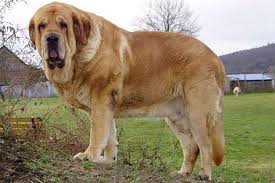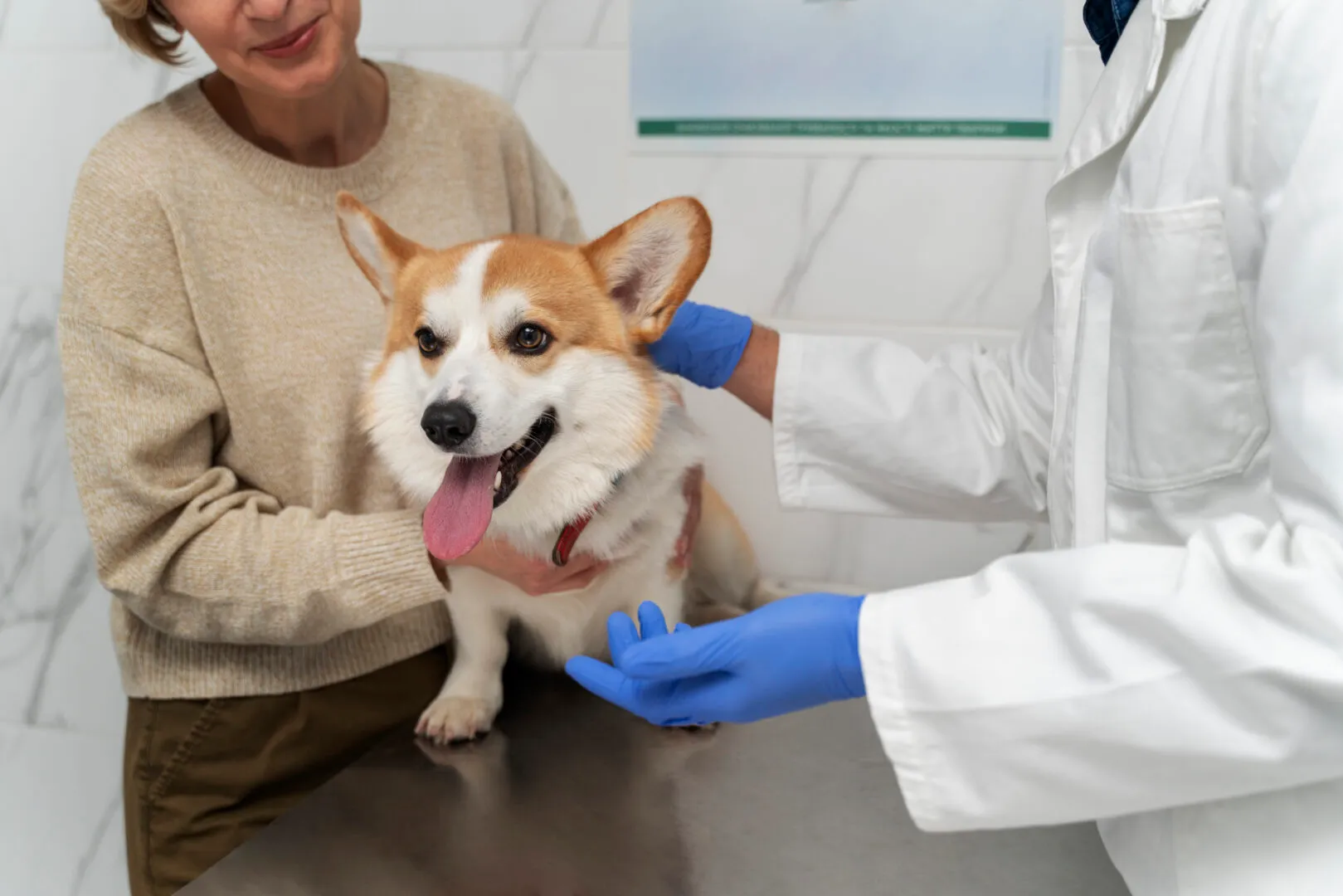
Spanish Mastiff
Conditions of detention
Spanish Mastiffs thrive in rural environments with plenty of space to roam and exercise. They are best suited for homes with large yards or access to open areas and do well in both rural and suburban settings.
Useful Fact: Due to their large size and protective instincts, Spanish Mastiffs are not ideal for apartment living unless they receive ample exercise and mental stimulation.
Nutrition and diet
A balanced diet rich in high-quality proteins, fats, and essential nutrients is crucial for the Spanish Mastiff. Their diet should support their large size and active lifestyle.
Useful Fact: Monitoring portion sizes and providing a diet appropriate for their age, weight, and activity level helps prevent obesity and maintain optimal health.
Health
Spanish Mastiffs are generally healthy dogs with a lifespan of 10-12 years. However, they can be prone to specific conditions such as hip dysplasia, elbow dysplasia, and bloat (gastric dilatation-volvulus).
Useful Fact: Regular veterinary check-ups and genetic testing can help detect and prevent common health issues in Spanish Mastiffs.
Grooming and care
The Spanish Mastiff has a dense double coat that requires regular grooming to prevent matting and reduce shedding. Weekly brushing is recommended to keep their coat in good condition.
Useful Fact: During shedding seasons, more frequent brushing may be necessary to manage the extra hair. Regular grooming sessions also help reduce the risk of skin infections.
Education and training
Spanish Mastiffs are intelligent and independent, making them relatively easy to train with consistent, positive reinforcement methods. However, they can be strong-willed and require a firm but fair approach.
Useful Fact: Early socialization and obedience training are crucial to develop good behavior and ensure they are well-adjusted adults. They respond well to reward-based training methods.
Toys and entertainment
Interactive toys, puzzle games, and activities that stimulate both their mind and body are ideal for keeping a Spanish Mastiff entertained.
Useful Fact: Spanish Mastiffs enjoy activities that challenge their intelligence and physical abilities, such as obedience training and gentle play.
Safety
Ensure your home and yard are secure, as Spanish Mastiffs have strong protective instincts and may roam to guard their territory.
Useful Fact: Microchipping your Spanish Mastiff can help ensure their safe return if they ever get lost.
Accessories
Sturdy collars, harnesses, and leashes are necessary for daily walks. Grooming tools like brushes, combs, and detangling sprays are also essential.
Useful Fact: High-quality, durable chew toys can help maintain their dental health and provide mental stimulation.
Socialization
Early and regular socialization with other dogs, animals, and people is crucial for a well-rounded Spanish Mastiff. This helps in developing a friendly and confident demeanor.
Useful Fact: Puppy classes and regular playdates with other dogs can enhance their social skills and reduce shyness or aggression.
Travel and Transportation
Spanish Mastiffs adapt well to travel, but ensuring they are comfortable and secure in a car or crate is important for safety.
Useful Fact: Gradual introduction to car rides and providing familiar toys or blankets can ease travel anxiety.
Behavior and psychology
Spanish Mastiffs are known for their loyal, protective, and intelligent nature. They thrive on companionship and mental stimulation, making them loyal and engaging pets.
Useful Fact: Mental exercises, such as learning new tricks and participating in dog sports, can prevent boredom and associated behavioral issues. Spanish Mastiffs are known for their strong guarding instincts and can be very protective of their family.
Legal aspects
Owning a Spanish Mastiff may require specific licenses or adherence to local regulations regarding pet ownership. Ensure your dog is registered and vaccinated according to local laws.
Useful Fact: Familiarize yourself with any breed-specific legislation in your area to avoid any legal complications.


